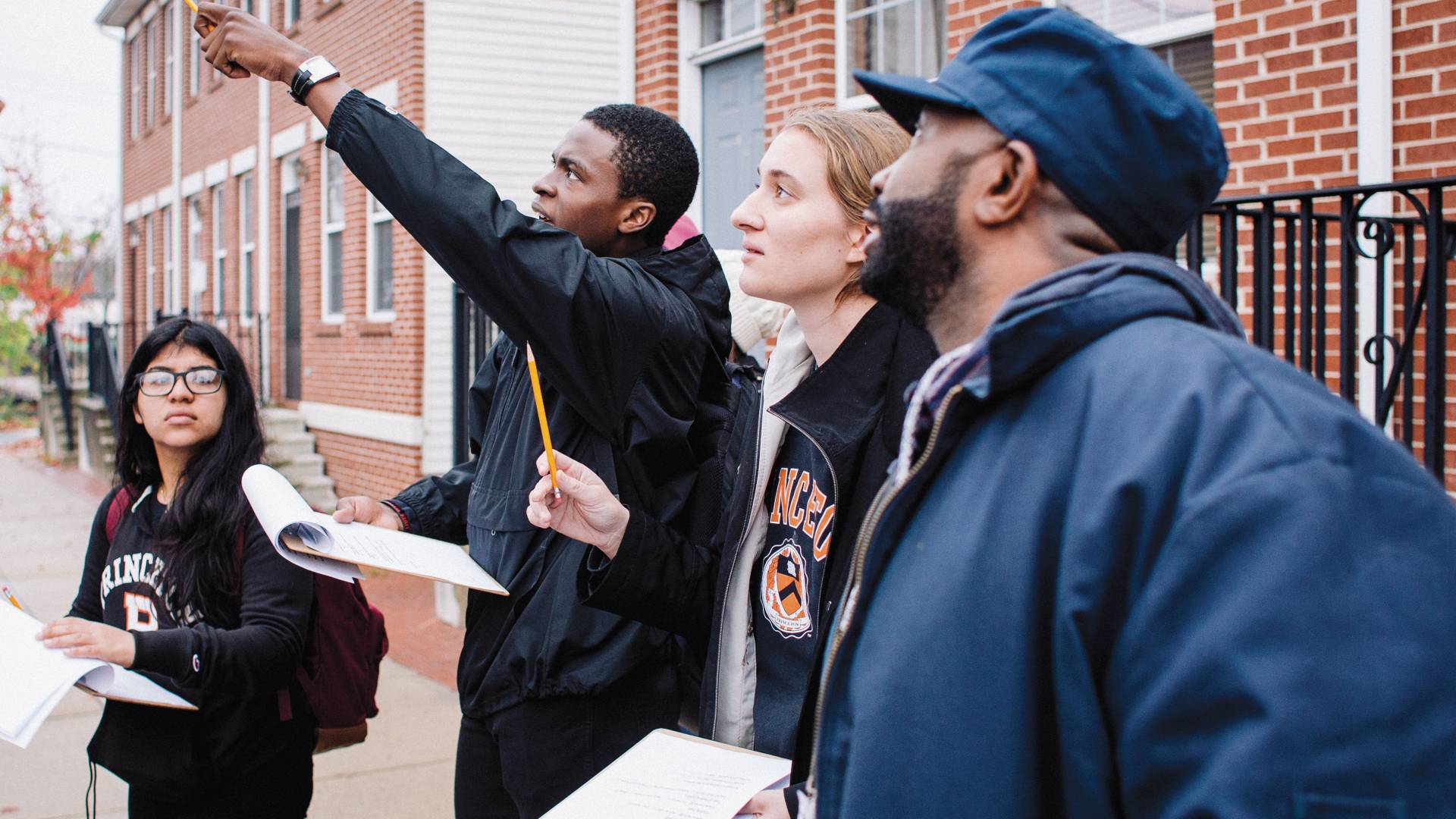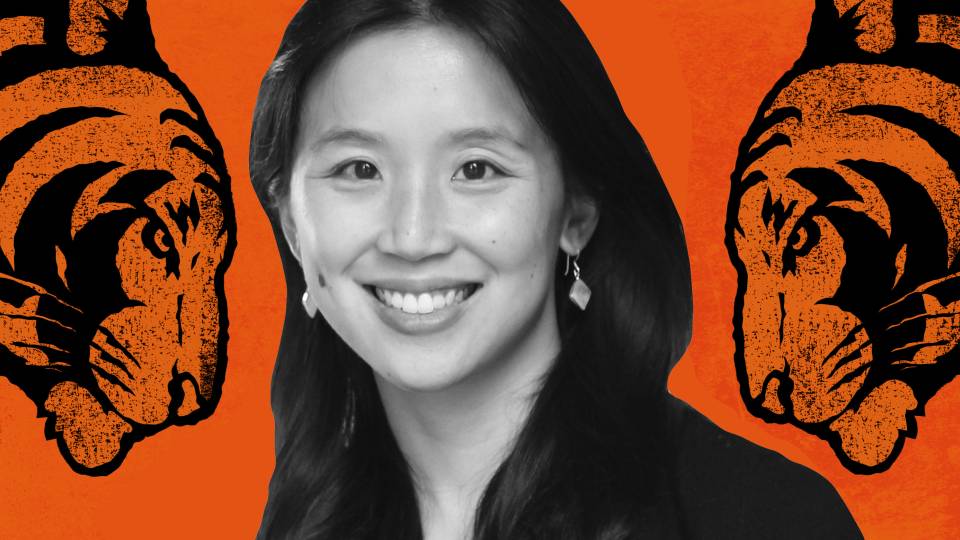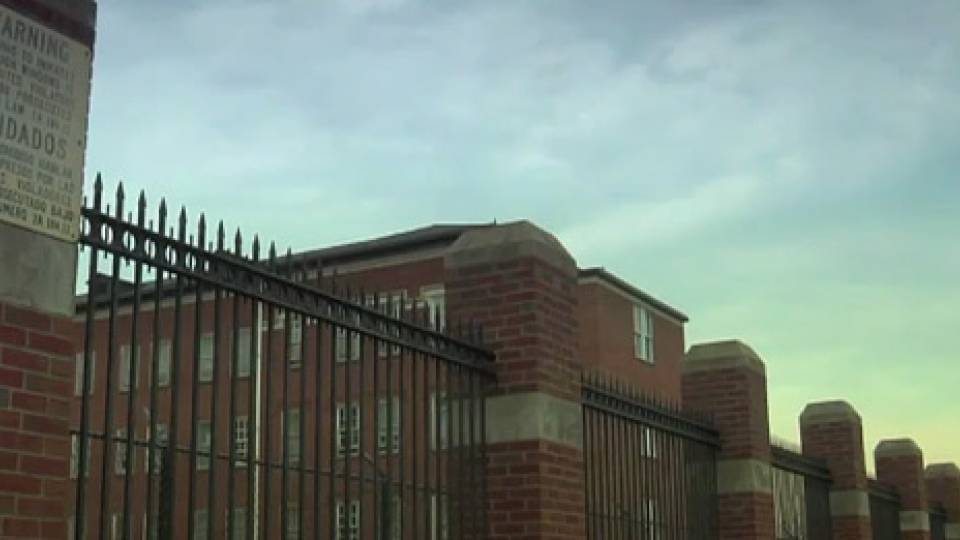As part of the new Service Focus program, students will take a service-related course in their sophomore year. The Community-Based Learning Initiative (CBLI) will support even more classes that include direct service or community-based research. Shown here are undergraduates in the freshman seminar “Is Your Zip Code Your Destiny? Exploring the Social Determinants of Health,” part of a course with CBLI in which students perform a healthy home assessment with staff from Isles in Trenton, New Jersey.
What’s your service focus? That’s the question Princeton students will consider as part of a new program that bridges service and learning across the first two years of the undergraduate experience.
The Service Focus program will bring undergraduates together to explore the meaning of service and its place in their lives during an intensive yearlong experience. First-year students were invited to apply to the program this spring and to date 65 have been selected as the first cohort of Service Focus undergraduates. Students will participate from spring of their first year to spring of sophomore year.

Service Focus will select a group of undergraduates to explore the meaning of service during an intensive yearlong experience. Yi-Ching Ong, left, director of Service Focus, speaks with Tori Styers, a first-year student who will start her Service Focus experience by interning with the Levolosi Health Centre in Tanzania this summer as part of the International Internship Program. During her internship, Styers will focus on labor and delivery as well as pediatrics. The Office of the Dean of the College, the Office of the Vice President for Campus Life and the Pace Center for Civic Engagement oversee Service Focus.
Service Focus builds on the University’s commitment to service and civic engagement. The program consists of a funded summer service internship; service-related courses; and opportunities for students to engage with faculty and peers to learn what it means to be “in the nation’s service and the service of humanity.”
The Office of the Dean of the College, the Office of the Vice President for Campus Life and the Pace Center for Civic Engagement oversee the program.
“Service Focus represents a way to knit our campus ethos into our academic programs,” said Dean of the College Jill Dolan. “Adding a coursework component to a student’s service work trajectory will help them reflect on the skills and ideas they bring to other communities, as well as on how their engagement enhances their own education.”
Vice President for Campus Life W. Rochelle Calhoun said Service Focus “is one very concrete way that the University is demonstrating that service can be a central part of a student’s experience at Princeton.”
“The opportunity to see service through the lens of learning, both inside and outside of the classroom, supports the core idea that student learning is holistic and integrated,” Calhoun said.
The idea for Service Focus emerged from the University’s strategic planning process as a way to help students form their own commitment to service and to make service more integral to the undergraduate experience. Students will address critical societal challenges through complementary curricular and co-curricular activities.
The initiative will be led by Yi-Ching Ong, the new director of Service Focus. Ong said Service Focus is unique as a single program that combines innovative educational approaches, student engagement and leadership, faculty mentorship, and thoughtful reflective experiences.
“Service Focus builds upon many of the wonderful opportunities already offered at Princeton,” said Ong, who previously worked at the University’s Global Health Program. “It aims to create a robust and extended learning process that is guided by service as a central lens. We hope to offer students distinctive resources and programs that can help them build on their interest in service and make greater connections with their academic work.”

First-year students work together to visualize what their Service Focus experience will look like and brainstorm what they want to achieve through the program at the Spring Leader Intensive, a full day of workshops and trainings organized by the Pace Center. Service Focus students are selected in spring of their first year and the program will run through spring of their sophomore year.
Service Focus students will gather at a kick-off event on May 11, to celebrate with faculty, staff and program partners from the University and community.
This summer, students will participate in service internships sponsored by 13 University departments: the Center for Health and Wellbeing, Center for Jewish Life, Community-Based Learning Initiative, Keller Center for Innovation in Engineering Education, Lewis Center for the Arts, Office of International Programs, Office of Religious Life, Pace Center, Princeton in Asia, Princeton Environmental Institute, Princeton Internships in Civic Service, Princeton University Art Museum, and the Princeton Varsity Club.
When they return to campus in the fall as sophomores, students will join close-knit peer groups that meet regularly with Service Focus staff members and faculty fellows. The groups will discuss their internship experiences and explore topics such as leadership in service.
Students also will take a service-related course to connect their co-curricular experiences with their academic work. As part of this curricular expansion of service, the Community-Based Learning Initiative (CBLI) will support even more classes that include direct service or community-based research, bringing community expertise into the classroom and allowing for historical and theoretical reflections on service.
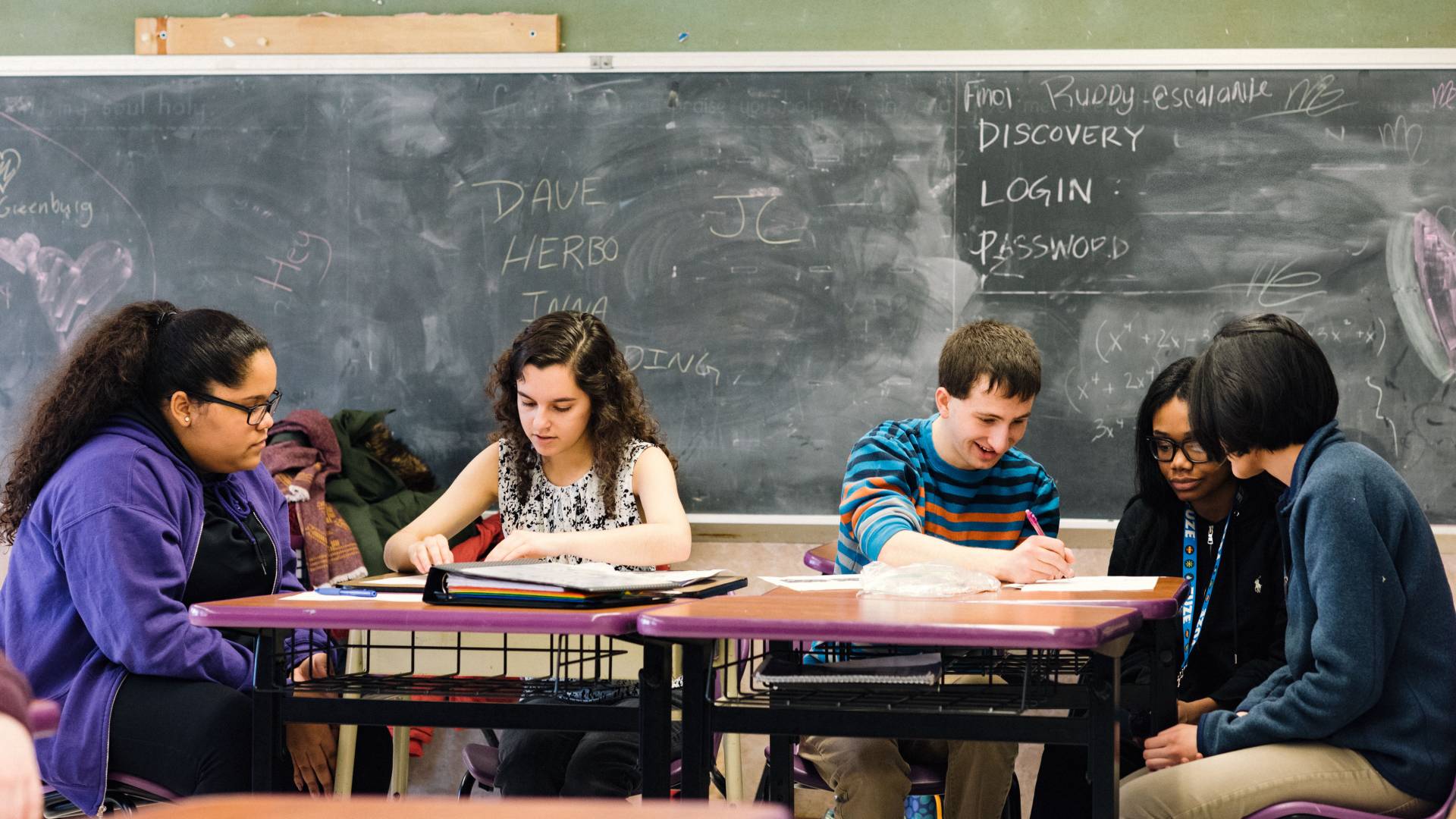
Service Focus will build on academic and co-curricular opportunities already offered at the University. Here, Princeton students provide math enrichment to high school students in Ewing, New Jersey, through the MathReach Student Volunteers Council project.
Many CBLI-designated courses also will be designated as Service Focus classes. For example, classes for fall 2018 include: “Race and Ethnicity,” taught by Professor of Sociology Patricia Fernández-Kelly; “Documentary Film and the City,” taught by Purcell Carson, a documentary film specialist in the Woodrow Wilson School of Public and International Affairs; and “Poetry and Belief,” taught by Professor of English Jeff Dolven. The poetry class is organized jointly with the Princeton Prison Teaching Initiative and will meet inside a local prison, with students and inmates learning together.
Dimitris Ntaras, Class of 2021, is excited to be among the first group of Service Focus students. He will spend this summer as a Keller Center intern, working on a concept for a water-filtration system tailored to the needs of developing countries. The work will inform his academic interests in molecular biology, global health and entrepreneurship, as well as his personal passion to improve the health and living standards of underserved populations.
“My participation in Service Focus stems from my desire to see the wealth of knowledge and skills we attain at Princeton put into practice for the benefit of the society,” Ntaras said. “Within just a year, I have met so many people here engaged in ambitious entrepreneurial, research or civic endeavors in different disciplines. But our efforts were never (prior to this) brought together under one program, so this presents a tremendous opportunity to assess our collective impact, share our perspectives of service and understand how what we do here at Princeton can be applied towards large real-world challenges.”

Princeton faculty and student volunteers with the Prison Teaching Initiative and the Petey Greene Program talk with inmates at the Albert C. Wagner Youth Correctional Facility in Bordentown, New Jersey. One of the CBLI Service Focus classes for the fall 2018 semester will meet inside a local prison, with Princeton students and inmates learning together.
First-year Max Jun Kim will spend his service internship as a Community Action Fellow with the Pace Center. He will help develop service-learning activities in the Princeton area for incoming students during Orientation.
“I’ve really grown close to the people I’ve met through the Pace Center; the student volunteers, the staff and community partners,” Kim said. “I hope Service Focus will help me experience service in a new way and create more lasting relationships. And in the classroom, I hope the program will help me continue to evaluate what I stand for and how I can integrate service into my daily life.”
The integration of service into students’ lives is exactly what Ong said she hopes undergraduates gain from the new program.
“Service Focus will be a way for students to enhance their learning experience at Princeton, giving them opportunities to grapple with complex, real-world problems as well as delve deeply into understanding and contextualizing these problems through their coursework,” Ong said. “We hope this program will help students use their passions, energy and talents to contribute to pressing societal needs. We see one of the central aims of a Princeton education as equipping students with the skills and perspectives they will need to be ‘in the nation’s service and the service of humanity.’”
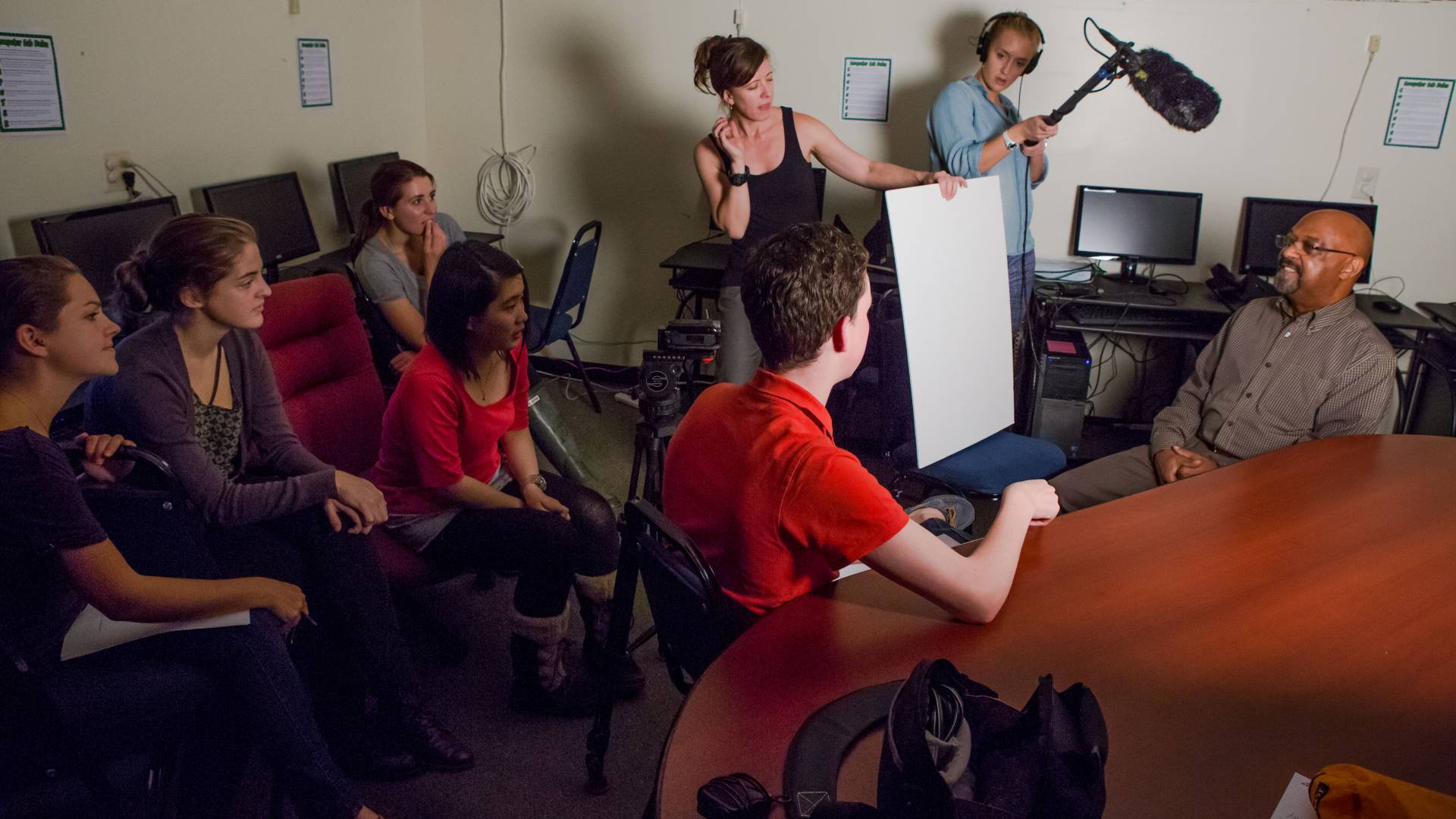
Another CBLI class available to Service Focus students will be “Documentary Film and the City,” taught by Purcell Carson, a documentary film specialist in the Woodrow Wilson School of Public and International Affairs. In previous years, students made short films about the history of the city of Trenton.
